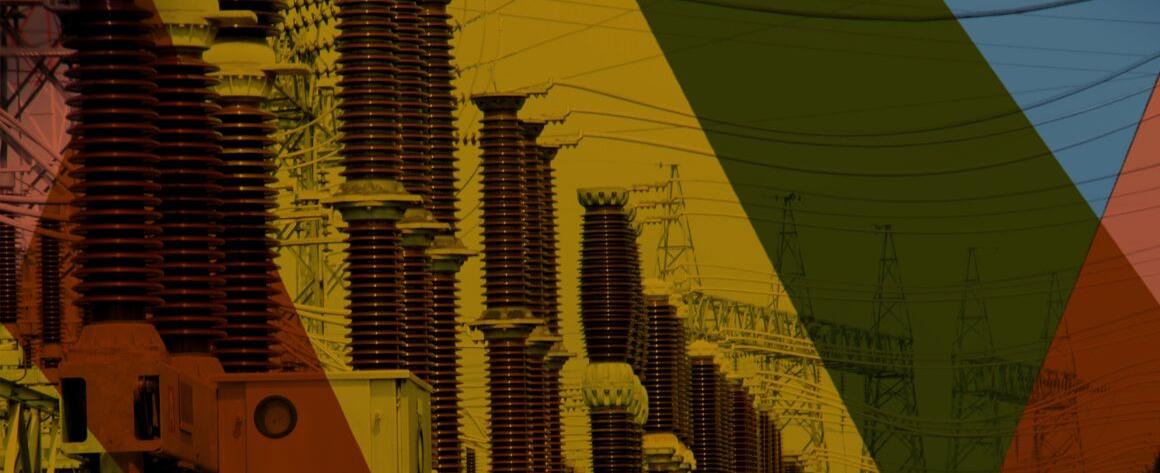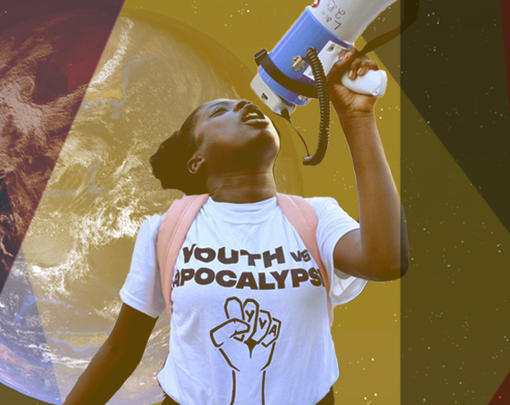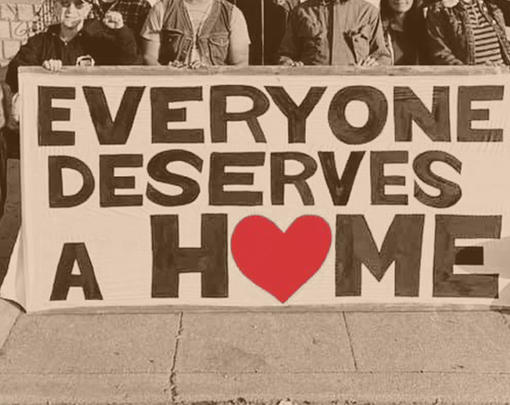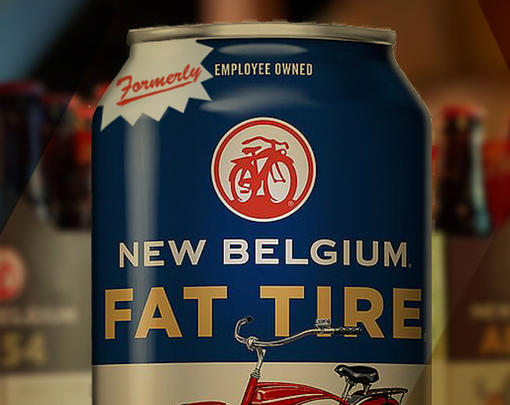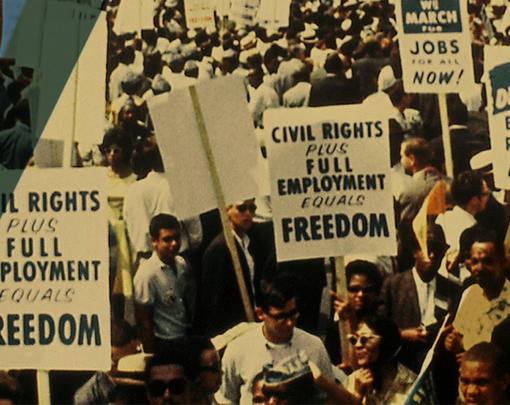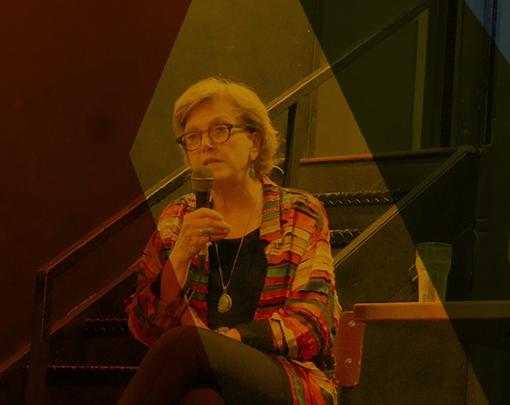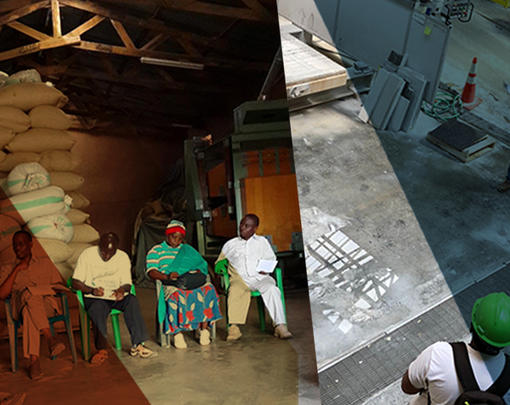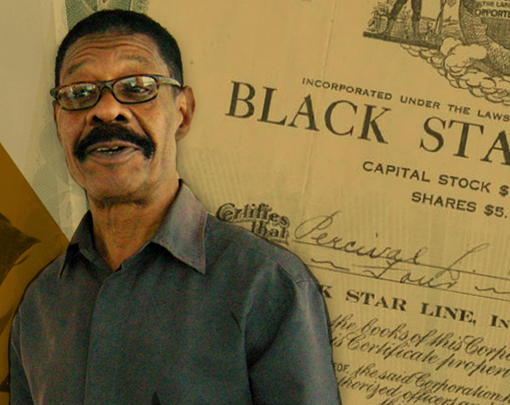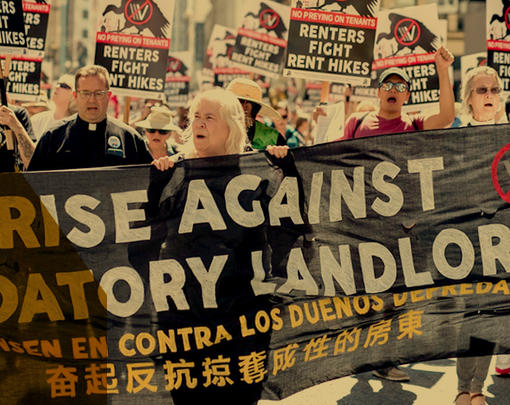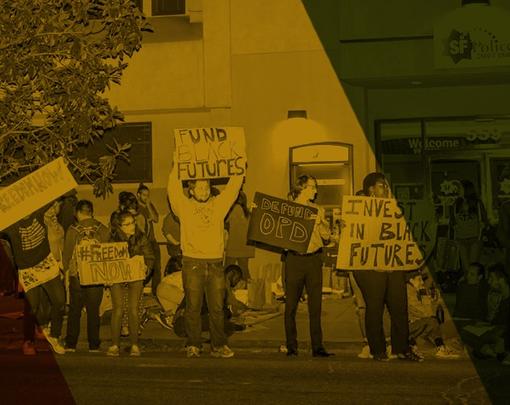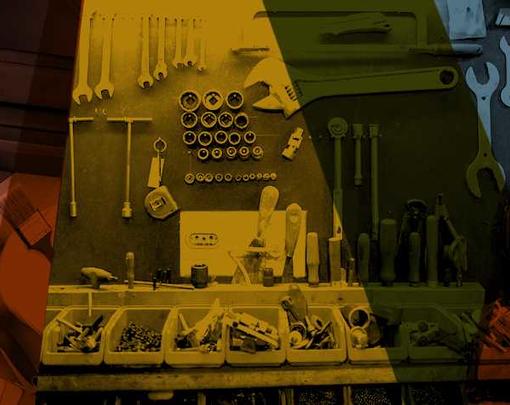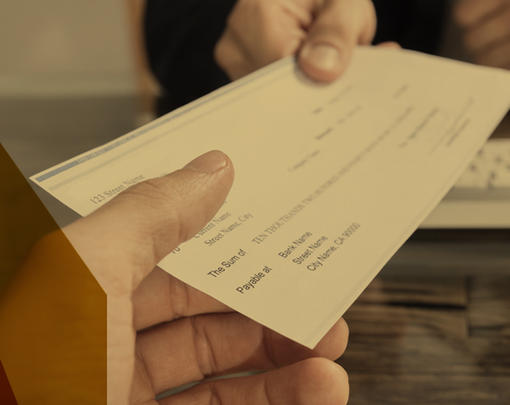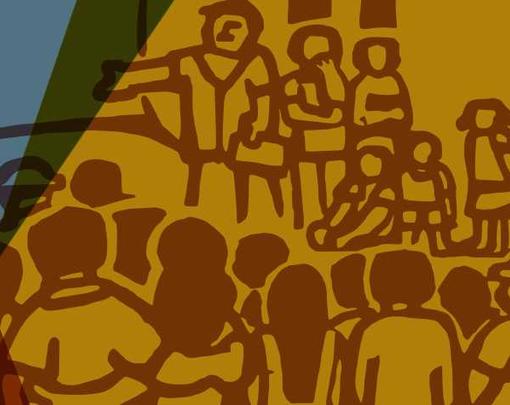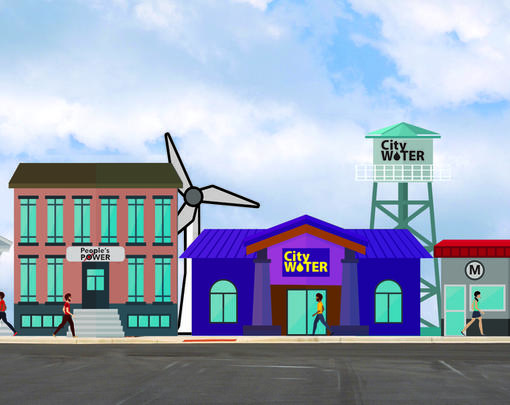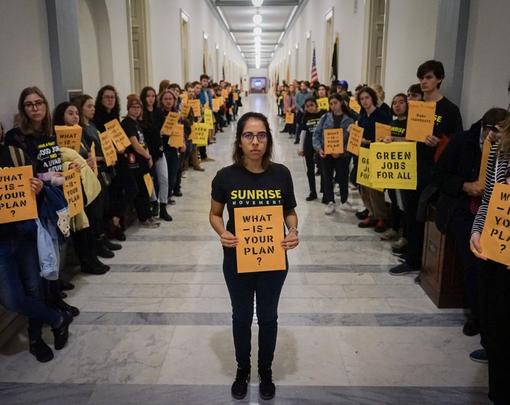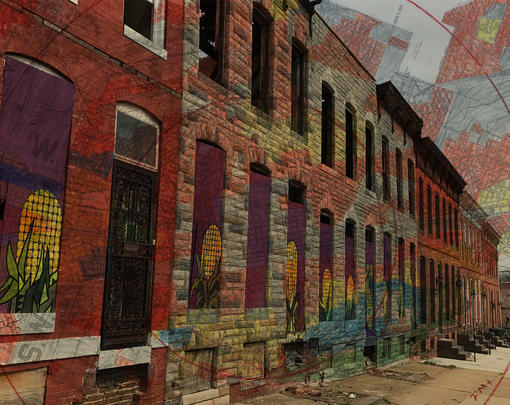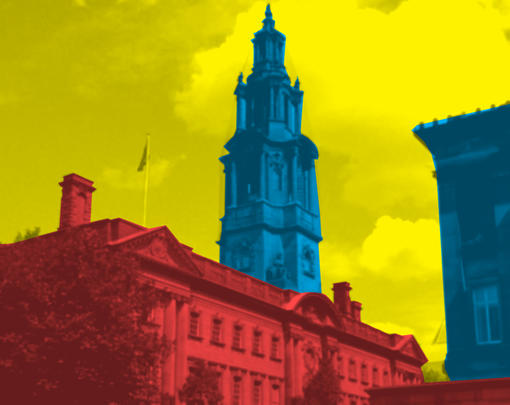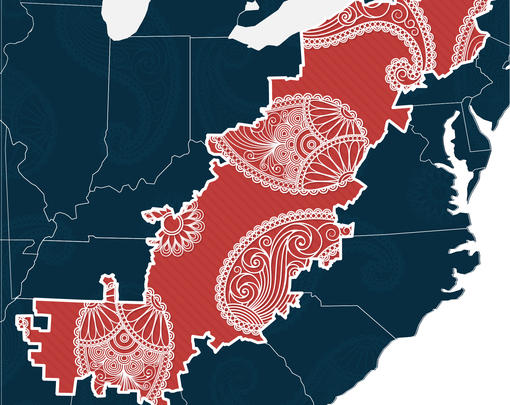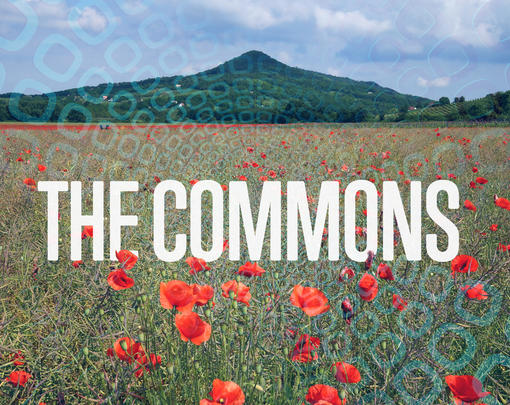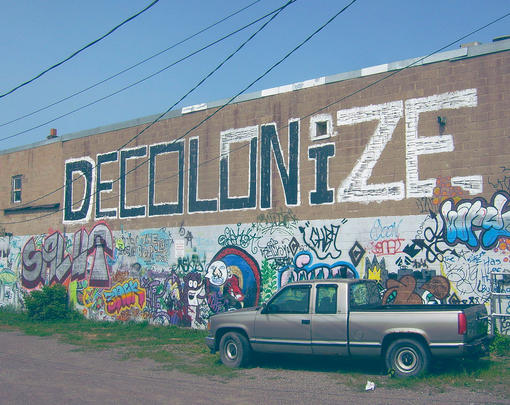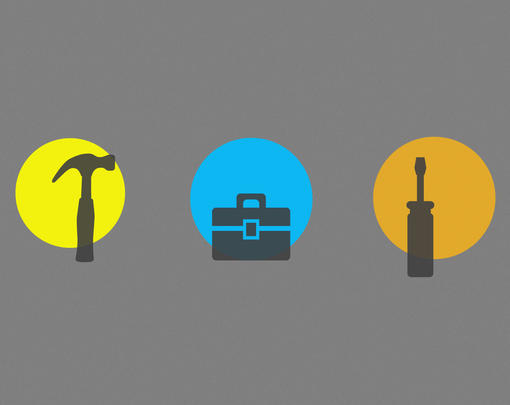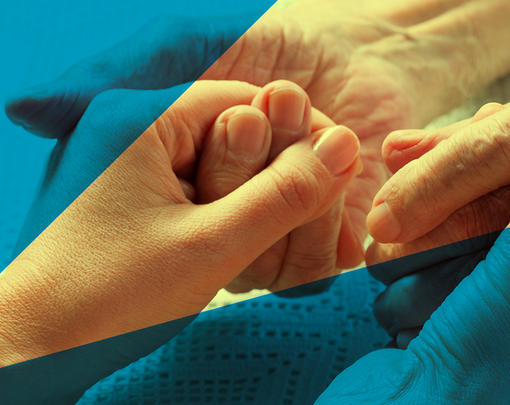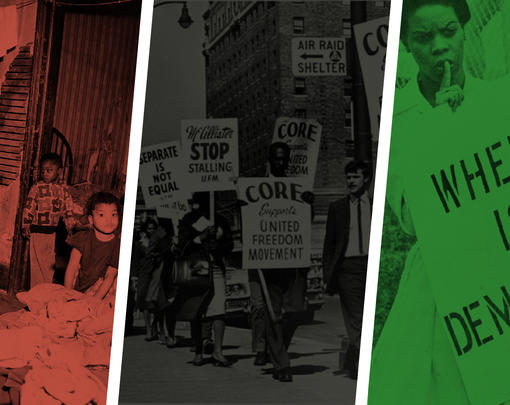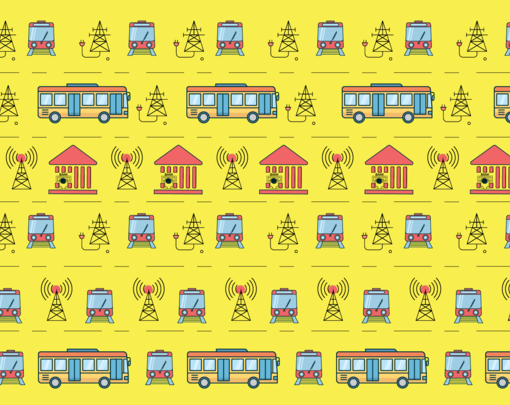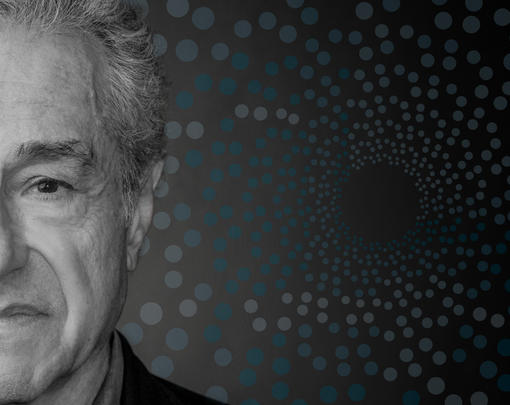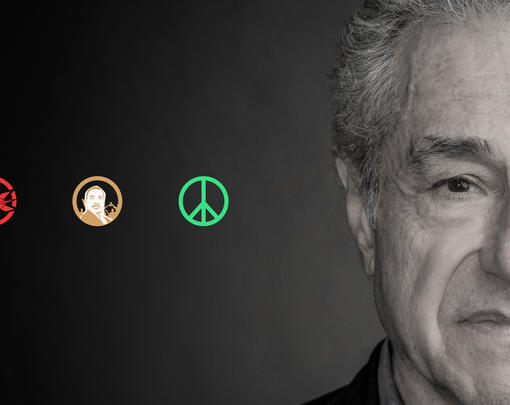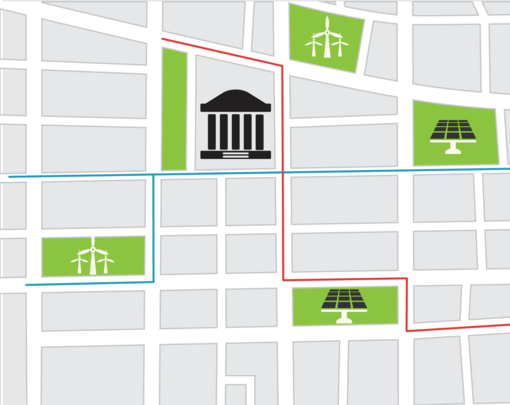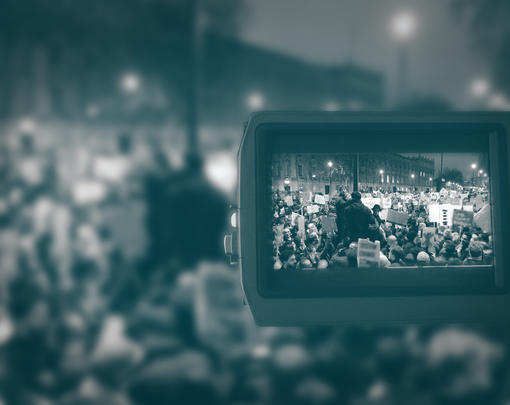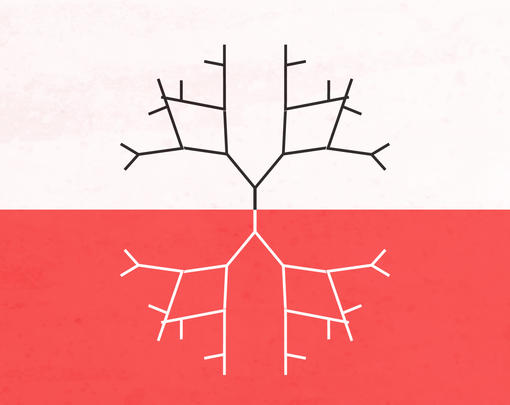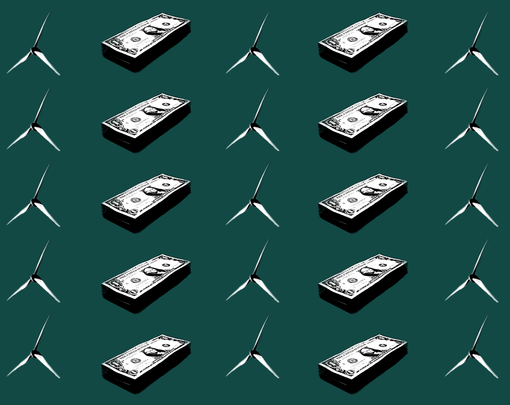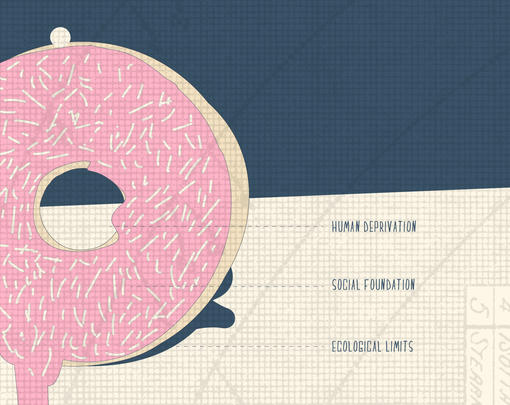In this episode, we’re discussing how to further democratize rural electric cooperatives and what that means for the communities that these institutions serve. In this podcast, we’re joined by The Democracy Collaborative’s Johanna Bozuwa, Nikita Perumal from Kentuckians for the Commonwealth, and Chris Woolery from the Mountain Association for Community Economic Development. We’re talking about their recent collaboration on the New Economy Coalition’s latest toolkit on rural electric cooperatives. Be sure to check it out! https://www.electriccooporganizing.org/
The Next System Podcast is available on iTunes, Soundcloud, Google Play, Stitcher Radio, Tune-In, and Spotify. You can also subscribe independently to our RSS feed here.
Chris Woolery: People can and should be inspired by those principles. It’s pretty easy thing to ask, how are you democratic? How are you helping other cooperatives? How are you serving your members? That’s a great entry point into much bigger questions.
Adam Simpson: This week we’re talking about power, at the intersection—really—of electric power and people power. In rural America, electric power cooperatives are not uncommon, however they’re not always democratic. That’s why today we’re talking with organizers that are working to help democratize those institutions and give voices to the people that those rural electric cooperatives are seeking to serve. Now to introduce our guests: Johanna Bozuwa is the co-manager of the Next System Project’s Climate and Energy program. Johanna is the author of a newly published report from Common Wealth,Shifting Ownership for the Energy Transition in the Green New Deal: A Transatlantic Proposal. Johanna, thanks for joining me again.
Johanna Bozuwa: Thanks so much for having me, Adam.
Adam Simpson: Our second guest is Nikita Perumal, who is the New Energy and Transition organizer with Kentuckians For The Commonwealth. Nikita, thank you for joining us.
Nikita Perumal: Thanks for having me.
Adam Simpson: Finally, we have Chris Woolery, who is the program coordinator for the How$martKY program at the Mountain Association for Community Economic Development. Chris, glad to have you on The Next System Podcast.
Chris Woolery: It’s an honor to be here. Thanks for having me.
Adam Simpson: Today, we’re talking about rural electric cooperatives. I want to start with really just the definition. What is a rural electric cooperative? Can you tell me a little bit about their history in the United States and what the history means to you?
Johanna Bozuwa: Rural electric co-ops were started, actually, during the original New Deal. We are having a lot of conversations these days about a Green New Deal. But in the New Deal era—in the 1920s, actually—rural electric co-ops were started as a way to electrify rural America because often investor-owned utilities were unwilling to go into rural America because they didn’t see the economic game. But cities were far ahead in terms of electrification in comparison. The Rural Electrification Administration helped to start over 900 rural electric co-ops that electrified rural America, taking it from about 10% electrification to 90% within 10 years.
The really interesting thing about these electric co-ops is that they are cooperatively-owned. The folks who are living in rural electric co-op service areas actually own their electricity and the company that distributes their electricity, which as we’ll talk about likely in the rest of this podcast has some really interesting implications for the democratic economy and organizing for moving towards a just and equitable, 100%-renewable-energy future.
Adam Simpson: When we’re thinking about that history, I think that one thing we’re going to be digging into is the governance of these institutions, these cooperatives. I think the idealized version of what we would say is it’s very democratic and it’s very led by the local community. Is that something that’s typical in practice? How do those practices normally play out from the viewpoint of people that are working on this issue?
Nikita Perumal: I’ve really only been working on this area of work for a couple of years and really know the Kentucky specific example. Definitely, other folks jump in with broader examples. But I would say that’s exactly right. Co-ops are supposed to be member-owned, member-led, democratic. They have this real promise of doing so. Yet, when you look at anything from the folks who are on co-op boards right now to how many people vote regularly in electric co-op elections, to even how many folks know that they’re member-owners, it’s a really different story. A lot of co-ops have moved away from these values. I know in Kentucky, we tend to see co-op governance and leadership be a bit like an old boys club. It’ll often be someone has been on board for like 30 years and then it gets passed off to their son.
I think I’ve seen this statistic before in more than 70% of electric co-op board elections, like less than 10% of member-owners are voting. I think that’s for a lot of reasons… These elections aren’t accessible. People don’t know about them to begin with. That’s really a status quo that a lot of co-ops seem to be working to entrench because they don’t want more democratic ownership. At least that’s my interpretation of it.
Chris Woolery: I think back 10, 15 years ago when I was a member-owner of Blue Grass Energy, for much of that time, I was struggling financially in part due to the housing crash that happened in 2008. Boy, I wish I had known Nikita back then because I did not know that I was a part-owner of Blue Grass Energy. I did not know that I was one of tens of millions, over 40 million part-owners of their rural electric co-ops in the United States. I did not know that over 40% of the nation’s distribution lines were part of our rural electric co-ops that cover over 75% of this country’s land. Then most importantly, I did not know that more than 90% of persistent-poverty counties in the US are served by rural electric co-ops. I had found my voice, but I didn’t know that I could use it there. I feel like that was a huge missed opportunity.
Johanna Bozuwa: Yeah. I’m thinking about another statistic that I ran into in looking at this where particularly in the rural south, I believe Mississippi, around 90% of the service area, they’re serving people of color. But the boards just don’t reflect that reality. It’s something like 90% of the people who are actually serving are white men. There’s just a huge power imbalance in terms of who is in charge of these co-ops. Then the implications for things like people being able to have access to voting or even knowing that they have agency and autonomy in these structures.
Adam Simpson: Thank you all for that. Chris, I want to come back. It was really interesting because I was actually wondering before we started talking today if anyone was an owner, or had been an owner before, of one of these rural electric co-ops. I wanted to follow up, how do you think that if you had known then what you know now, how would you have felt empowered given the crash and all the things that I think everyone was sensing about the economy and their place within it? What do you think that would have meant to you? What would have been different had you been empowered with the knowledge that you have now?
Chris Woolery: Well, right now, I live in Lexington, Kentucky. I’m a ratepayer. I have to deal with Kentucky Utilities. I’ve tried many times. From my perspective, I don’t see that Kentucky Utilities is interested in what I have to say. But I know for a fact that the rural electric co-ops in Kentucky are open to their members’ input. They may not be as transparent and as democratic and as representative as we would like, but there is a path for each of those member-owners, a direct path, to the leadership of that cooperative. I mean, there’s nothing that’s stopping them from showing up at that annual meeting and standing up and saying, “Hey, I’m struggling. My neighbors are struggling. It’s my understanding that you could help me. I heard about this thing called How$mart Kansas. Why can’t we have that here?”
In my activist work, when I punch out of the clock for MACED and I get to working with Nikita with the New Energy and Transition committee at Kentuckians For The Commonwealth, I have not been able to impact a single thing that Kentucky Utilities wants to do and has been doing. We held them off. We slowed them down. But they’re having their way with us. It’s a shame. I know that if I was a member of a rural electric co-op now, that they would be hearing me on all those issues.
Adam Simpson: This is kind of what we’re talking about today. We all punch out and go do our organizing because there’s a new organizing toolkit that has been put out by the New Economy Coalition, which listeners can find at electriccooporganizing.org. But I wanted to ask from you all that have had a role in how it was shaped and definitely promoting it and trying to get co-ops organized, can you tell me a little bit about what your own motivation for building this toolkit was? What do you think it means for organizers?
Nikita Perumal: KFTC and MACED and plenty of other groups, we’re members of the New Economy Coalition. We also belong to this working group on rural electric co-ops that NEC kind of facilitates. It’s been a really beautiful space because a lot of times when you’re working on energy and equity issues, co-ops aren’t always represented or those issues aren’t always being brought to the forefront. I remember at CommonBound, someone just mentioned. It was so refreshing. We had a meetup of folks who belong to that working group who were interested in this work and someone mentioned. It was so refreshing just to be around people working on rural organizing and who get some of these struggles.
That group has always served to lift each other up and share strategy, that kind of stuff. Then we were realizing we all have a lot of joint resources and strategies and similar questions that not only the folks in this working group, but also presumably lots of other member-owners just across the states would have about like, first of all, what is a co-op? Why do they have this democratic mission? How can I influence it? But also, how can I think about running for board? How can I look into my co-op’s finances? How can I shape my co-op to be a champion for energy efficiency, or clean energy, or things that really matter to the community?
It was an extremely collaborative and fun effort between the working group to just compile our resources. Folks would jot down notes on how it can be used. Then we put it all together on this website, electriccooporganizing.org. Now, it’s like this accessible online tool. Hopefully, anyone who is a member-owner of an electric co-op, or someone who’s an organizer hoping to help out member-owners to push their co-ops to be more democratic and more champions for the world we want to live in, that’s all there for them. Hopefully, they can also get in touch with folks from the working group for more support, but there’s a place to start now. I think was what we were thinking about.
Johanna Bozuwa: One thing that excited me about that toolkit, and I’d love to hear from you all, maybe about what are some of the strategies? It seems like one thing is actually getting people on the board. First, activating folks to know that they have power in this situation, metaphorical and I guess physical, too, since they own the lines. But taking that power and then applying pressure by electing folks to the board. I wondered from the resources, what are some of those strategies? How do we think about creating a more representative board in some of these rural electric co-op spaces?
Adam Simpson: When it comes to democratizing these institutions, these rural electric cooperatives, so one thing that I’m hearing is that the main point is that people need to be aware that these exist, and that they are owners so that they engage with it. But is there a way to think about democratizing these institutions beyond simply engagement? Are there different structural things that different co-op models need to change in terms of governance? How do we think more broadly about democratizing these institutions?
Nikita Perumal: I would say, for one thing, co-ops are all governed by their constitution and then by their bylaws. Those bylaws can be really important for thinking through how they’re actually governed. There’s some bylaws that say we allow proxy voting. Any board member can actually have asked a bunch of people who don’t really feel that invested to give them their vote, and then make sure that the board-approved candidate gets passed in. That’s happened in Kentucky. There’s bylaws that don’t allow for open meetings. We’ve had KFTC members who try to just attend a co-op board meeting and are told, “Actually, these aren’t open. If you want to present to the board, you can come in for these five minutes, and then you have to leave afterwards.”
That’s really a textbook example of an inaccessible process that doesn’t leave a lot of room for people to participate, even if they know that they’re a co-op member-owner. Yes, you definitely want to empower people to know, “I own my utility.” But then I think there often has to be a pretty intense organizing effort from those member-owners to make sure that they can actually have a voice and that the bylaws are reflective of a good democratic process.
Chris Woolery: I like to look at the cooperative principles as a great starting place as well. Most cooperatives, they really want to look at themselves as embodiments of cooperative principles to the point where they may have them posted in their lobby, or on their website, or in some of their promotional materials. Kind of like our constitution and our founding fathers said, “Hey, we hold these truths to be self evident,” but they didn’t live up to them in practice. We can hold our institutions to their bumper sticker, so to speak. Right? If founding fathers say, “We think that all men are created equal,” but only 6% of men at the time could vote; you had to own land and be white to vote. But over time, we have moved closer and closer and closer to that principle. I think the principles of cooperatives are a great example of how we can use rhetoric to move towards action.
People can and should be inspired by those principles. It’s pretty easy thing to ask, how are you democratic? How are you helping other cooperatives? How are you serving your members? That’s a great entry point into much bigger questions.
Adam Simpson: One thing I want to ask about here is that in certain ways—obviously, there are class dimensions to this—but it reminds me a little bit of shareholder advocacy. Essentially, we’re talking about how to… Especially when it comes to improving environmental outcomes in terms of shareholder advocacy, we’re trying to get, for instance, the shareholders of a bank to influence the way that bank does business, for instance. But in this case, we’re trying to get the owners of a utility, which is in the case of these electric co-ops, the local community to engage with this institution and make more environmentally sound decisions. Am I right about that? When you think about organizing and these terms of shareholder advocacy versus rural electric co-op organizing, do you think there’s a symmetry there? Or what do you think is different about those two processes?
Johanna Bozuwa: I would say that, Adam, it is even more powerful than shareholder activism because shareholder activism has to do with how much you have put in. That can be inequitable in terms of who gets access to power. Whereas, in rural electric co-ops, one, it is one-member-one-vote, which is a much more equitable mechanism for us to make change in ways that serve justice from my perspective. Furthermore, in the end, these are supposed to be nonprofit entities. The concepts of profit are a little bit different than they might be with a shareholder that is often primarily interested in facilitating better revenues for themselves. I’d love to hear from folks who have engaged with this like Nikita and Chris if this jives with how you guys think about this.
Chris Woolery: I just think about how difficult it would be to engage with fellow shareholders as compared to walking next door and having a conversation with my neighbor. In fact, we’ve done some of that work on the ground here in Kentucky. The last election cycle, I was on a team that worked to help get a city councilperson elected. When we went canvassing and knocking on doors with the candidate, folks stood at the door, at the screen door with their hand on the handle. They might open it a few inches if there wasn’t a screen to talk through. They were guarded. They were not necessarily candid. But when we knock on the door as the local energy and equity team of Kentuckians For The Commonwealth and we say, “Hey, how is your electric bill treating you? How comfortable are you? Would you like access to energy efficiency?” Folks step out onto the porch and have a conversation.
I think that proximity and community are the big differences between shareholder activism and cooperative member-owner activism.
Adam Simpson: Absolutely.
Chris Woolery: I think that those differences can lead to very powerful changes.
Adam Simpson: With shareholder advocacy, you’re essentially, in so many ways, trying to organize the rich, whereas with this, it’s still community organizing. You’re going door to door and you’re organizing your neighbors, as you said.
Johanna Bozuwa: I think the other piece—Chris says this so well—is that it’s the people who are being organized to take action and potentially redirect or direct to the rural electric co-op are also affected by the outcomes beyond a profit model. They are the ones that are going to feel these rate hikes, for instance. They’re going to feel the outcomes of investing in fossil fuels over renewables, or investing in an energy efficiency program. I think that that really shifts the equation in some ways in terms of how we can utilize this type of organizing for good.
Nikita Perumal: That’s a great point. I love that point.
Adam Simpson: Absolutely. I do want to follow up because often when we’re talking about energy transitions, and when we’re talking about, in particular, the Green New Deal, one of the central components to that is the question of organized labor, for one. Is, what dynamics is the broader energy transition? In so many ways, a vast amount of work, what effects that might have on labor. When we’re talking about, in particular, democratic institutions like rural electric cooperatives, kind of democratic institutions leading that transition, what effect would that have on labor versus saying some other sectors?
Johanna Bozuwa: From my perspective, what we’re seeing a lot within the utility realm is that they are confronted with this issue of having a huge amount of fossil fuel infrastructure. We’re seeing groups or companies like PG&E going bankrupt due to negligence, due to infrastructure that isn’t up to the task of dealing with climate change. In this for-profit model, they are often trying to identify how they shirk certain responsibilities like, for instance, pension funds of workers. Being in a rural electric co-op might shift that a little bit in terms of what happens as we’re thinking through this transition because workers might actually be located and rooted in the places where they’re working, if they do work for a utility, which then could mean that they could actually be engaged in that activism and at the table instead of… What do they say? If you’re not at the table, you’re on the table.
I think that working within the democratic process, we have more people potential opportunity to bring that voice there. Also, the community can bring that voice and do things like require that if we’re investing in solar or something, that that is something that is provided by a labor force that is equitably paid and gets pensions and all of these things. I can see that as a lever in terms of why a democratic institution could set up a better future for workers than a for-profit institution, particularly in something like energy.
Chris Woolery: I love that point, Johanna. Your quote makes me think about, I believe it was Shirley Chisholm who says, if you’re not at the table, then pull up a folding chair. That’s where member-owners of rural electric co-ops can do that. They can pull up their folding chair. Another quote that comes to mind is in the context of just transition. Right? We see changes in our economy all the time throughout our history. We see newspapers give way to online news. We see record industries and record stores get pushed aside by digital media. Joe Uehlein from the Labor Network for Sustainability said, “Working people in communities have always been the roadkill on the path of change.” Our nation, our society has never provided a just transition for working people. This must change. If working people are to support climate protection, then climate protection must mean a way to make a living on a living planet.
If we as Kentuckians, as Americans want to support a just transition, and we want fossil fuel and workers to be a part of the movement, that’s important to us. If we want to save ourselves from the climate crises that we are facing, then we have to bring workers into the conversation. What better way to do that than by talking to the workers that live in your community and showing solidarity for the workers that are being impacted by those changes? That’s happening in Harlan County right now in which folks that had been displaced from Blackjewel and lost their paychecks. Those pension contributions were not made on their behalf. They set up camp on the train. They stopped the coal from leaving their county and their community rallied to them because they know them. That is something that rural electric co-ops and proximity brings us in terms of tactics and strategy and potential.
Johanna Bozuwa: Another piece for me that kind of comes up here is, again, the history, bringing this back to… Creating rural electric co-ops was to create electrification. But in large part, that was also very deeply intertwined with creating access to new economic futures for folks in rural areas. Part of the suite of things that were put on the table during the New Deal were things like the Tennessee Valley Authority that were also about creating jobs. There is a history that we have to be very clear about when we are thinking about how jobs were provided and given access in that history, which is that it was largely for white men. It was not for people of color that lived in the Tennessee Valley. I think that that’s a piece, as we are thinking about the role of rural electric co-ops and labor as we move forward into a just transition as Chris named and mentioned, we have to ensure that everyone is at that table and that we are providing for other people of marginalized identities that weren’t a part of that initial transition to electrification so many years ago.
Adam Simpson: Absolutely. On that note, when we’re thinking about democratizing institutions, do other folks have a perspective on how to design these institutions to be more inclusive from the get-go and avoid the kind of failures of the past that Johanna was talking about there? Nikita, do you have any perspective on how to design for more inclusive institutions?
Nikita Perumal: It’s a really great question. Well, I don’t know. One thing I was thinking about was just like how much, for me, inclusion and accessibility to institutions are really intertwined. I was mentioning earlier, all those bylaws that make it really hard to participate either in a meeting or knowing that you’re even part of, or technically a co-owner of these co-ops or the ways that co-ops have really been entrenching the same power structures and the same people in power for really decades now. I think a lot of it to me does get down to changing the whole setup of that governance system to be accessible in a myriad of ways. I think there’s ways like making open meetings. Maybe you can vote online so you’re not having to take a second out of your workday to go to this annual meeting and submit your vote where you’re not even convinced that your vote really matters or will be listened to.
But then there’s also, I think, a ton about how accessible is the energy sphere overall. It can feel really technical. It can feel like a place that not everyone feels welcome. That is especially true. Johanna’s statistic earlier with like over 90% of board members in Mississippi being white men, I think that’s pretty consistent across the south. Just across the south, we’ve got board members who just don’t represent their member-owners, the folks who actually really should be owning and leading this coop. When you’re talking about energy issues, I want to see a world where we’re making these issues from the get-go feel really accessible and clear and non-wonky to everyone. I think that’s something we need to work on on the organizing side.
Then when it comes to changing the actual governance rules, there’s just a million little ways that we can be redesigning bylaws and constitutions so that people actually have a chance of having a say and getting that seat at the table.
Adam Simpson: Absolutely. In a similar vein, I mean, I know that we’re talking about democratizing these institutions and how we organize to do that. I wanted to ask if there are specific examples of victories in this space. If you folks have seen the impacts of those victories on the communities and you can describe what that looks like. Does that mean savings for the local community? Does it mean more sustainable in terms of the environment outcomes? Yeah. I’m just looking to hear a little bit about the victories that you really look to for inspiration and to build support for the work you do.
Chris Woolery: I would love to focus on some Kentucky examples. I want to ask Nikita, if she would mind, to speak to those. Some of those examples predate both of us in the work. Before that, I’ll just speak to a national example. That’s Roanoke Electric Cooperative in North Carolina. They have been doing work for decades to make their board more representative, to make their processes more accessible, to make their systems more accountable. It’s long, it’s hard, and it’s difficult work. But when it’s done well and rooted in community, over time, it creates tremendous change. Now we are in a position today in which the leader, the president or CEO of Roanoke, is the president of the National Rural Electric Cooperative Association. His name is Curtis Wynn. He is an amazing and inspiring speaker. He is a black man. He has led his co-op to uptake on Pay As You Save Inclusive Financing that dwarfs most other programs across the country.
Curtis Wynn and the folks that helped to put him in place have now created a system in which any one, any member-owner of Roanoke can access inclusive financing for energy efficiency that will lower their bills, make their homes more comfortable, make their homes more durable, make their homes more healthy for folks that have respiratory issues. Over time, will raise the value of those homes, and in turn, increase the tax base for local schools. The ripple effects of those things in that community cannot really be measured. The ripple effects of those changes on the community of cooperatives, especially now that Curtis is the president of the NRECA, also cannot be measured. It’s so inspiring. It’s a fantastic example. Curtis and his folks wrote an open letter to co-ops across the country and made available a decision tool to help those folks move in that direction. That’s the best example that I can think of outside of Kentucky, of course.
Adam Simpson: Nikita, could you tell us a little bit about the Kentucky models that Chris was alluding to?
Nikita Perumal: Yeah. Chris, you should still hop in because I think you know a couple of details that I probably don’t. KFTC did—back in the day before my time on staff, I think it was around 2009—help folks run for their co-op board. None of them won partially because of those reasons that I was alluding to earlier, like different structural ways that… Either bureaucracy or pretty intentional obstruction from the co-op powers that got in the way of a truly democratic race. But we’ve seen some really cool examples of what those elections did to push people. I believe this is correct. It’s in Owen Electric Coop. We had a KFTC member named Tona Barkley who ran for board and didn’t end up winning, but I think it was on her platform to have a Member Bill of Rights. After she ran and lost, Owen Electric ended up adopting a Member Bill of Rights. She had really started that conversation.
Nikita Perumal: There’s this great example that was also around this time in Eastern Kentucky. There’s a coal-fired power plant called the Smith Plant that was being proposed in Clark County in Eastern Kentucky. A bunch of co-op member-owners did everything from meeting with board members, to suing their co-op, to writing in local papers about it. But they really raised a big storm about the fact that we don’t need this coal-fired power plant. It’s going to be really hard on health and safety in our communities. But also, there’s no economic reason for this plant. They ended up not building the plant. Out of the settlement from that plant, the legal settlement, there was a requirement, I believe, to have a collaborative between public interest groups like KFTC and MACED and others and the East Kentucky Power Cooperative Board to just be having conversations about programs like energy efficiency.
Nikita Perumal: They ended up creating a solar farm for East Kentucky Power Cooperative that was really a direct result of that collaborative effort. This is, once again, all before my time, but really inspiring to think about.
Chris Woolery: Nikita, that was exactly right according to my memory. Again, I wasn’t in the work at that time either. I’ll just add that this is not Nikita saying this work lead directly to the solar farm. David Cruz stood up in front of the governor’s conference on Energy and Environment a few years ago and said it to the audience from the state. He acknowledged to that audience of policymakers and stakeholders the impacts of those co-op member-owners and the direct connection to the first utility-scale solar farm in Kentucky.
Adam Simpson: When we’re thinking about democratizing these, for instance, the solar farm or other components of energy systems in rural America, how do we tie these efforts and these organizing strategies to form a broader starting point for democratizing further other public services like, for instance, broadband? Do you see a connection there? Is it simply we’re hoping that people think, “If we can democratize this, then what else can we democratize?” Or is there a more direct connection when we’re talking about democratizing public services and utilities?
Johanna Bozuwa: One of the things that I’ll mention, so I’m originally from Vermont which has a very rural electric coop. But that’s up that way. Broadband has been a huge problem in Vermont. The ability for a rural electric co-op to start to provide not only electricity, which is totally a public service, they have also expanded that definition of what is a public service and what they can provide. Providing people access to something like the internet in this day and age is incredibly important and opens up whole other spaces for us to democratize.
One other example that I found really compelling in terms of examples of winning is I was in conversations with someone from One Voice in Mississippi that does a lot of activism related to elections and getting people activated around rural electric co-ops. They mentioned, “Hey, (well, similarly to the description Nikita gave) we didn’t maybe win an election seat in this one electric co-op,” and I’m forgetting the name of it, but it did activate members. It allowed them to see actually what access they have to, for instance, financing. As the story was told, this one particular woman realized that they could actually get financing to build things like playgrounds in their neighborhoods that they hadn’t even known was an opportunity through their rural electric co-op. I think that by opening up people’s minds to what a rural electric co-op can do, we can start to build even more spaces for community and build out more important public infrastructure needs in rural America.
Nikita Perumal: This is a very general statement, but I’ve learned a lot just through working with member-owners of co-ops and seeing just this structure. I think we talk often and organizing about how important it is to just see what is possible and to really be bold in our vision. When you can see an example of an institution that is working and is democratically owned, and every single person who receives this service owns a little piece of this utility, I think it models something really cool for the people who might want to be democratizing other institutions. Just like having that example there present and knowing that it comes from a pretty rich although complicated and certainly flawed history.
Chris Woolery: When I think of your question, Adam, it makes me think of the many meanings of the word “power.” I mean, the obvious meaning here has to do with energy and electricity. But there are so many other forms of power that have been wielded for us and against us. I’m speaking specifically to political and economic power. When you think about who runs the show in our communities and on our country, I think it’s pretty safe to say that the finance industry, the fossil fuel industry, and the communications industry are at the top of what I see as a pyramid, that individuals are lined up across the bottom of that pyramid. If you think about the potential for taking control of an investor-owned utility back into the hands of the people, like what is happening in Boulder, Colorado when they said, “Hey, this is what we want from you, Xcel.” Xcel said, “No, thanks.” Then they said, “Well, we can do this without you. We can do it better, and we can do it cheaper.” Then Xcel said, “Oh, okay. We’ll do some of that.” The people of Boulder said, “No, thank you.”
It’s not just that. If you municipalize broadband, or if you bring broadband to your cooperative, or if you municipalize your electric utility, you are not just taking energy power from the folks that run the show in our communities and in our country. You’re taking political and economic power from them as well. This has the potential to flip that pyramid over and put people across the top of an inverted pyramid and bring power literally back to the people in all forms.
Johanna Bozuwa: Yeah, Chris. I just wanted to second everything that both Nikita and Chris have said here. It really is an opportunity to build power and flip it in so many other places. I think the opportunity to show that this works in spaces like rural electric co-ops creates a significant amount of hope and proves the model that public and cooperative ownership can bring us into a non-extractive model of economic development and energy.
Chris Woolery: To expand on that, Johanna, the people of Boulder and the government, the legislators and the power brokers, they agreed to invest billions of dollars to take that power back. People that are member-owners of cooperatives already have that power in their hands. They just haven’t figured out quite how to use it. One example that I have to lift up because I was just in Harlan County on Monday and Tuesday is Bynum, Kentucky. Bynum owns their electric system. The Bynum power board is a municipal electrical system that is the smallest electric utility in the state of Kentucky. There are less than 300 electric meters in control of Bynum. The people of Bynum have come together to create the Bynum Savings Program, an inclusive financing program that’s funded only by grant funds that is currently right as we speak empowering those citizens to access amazing financing terms to make their homes more affordable, comfortable, and healthy. They’re going to use that money in perpetuity. As folks pay back the investments that are made, they will be reinvested in their neighbors. That is just tremendous.
Adam Simpson: I do want to follow up with you, Chris, on something you said. You were talking about the different forms of power. I want to connect building those different forms of power to building really a sense of community where that power might start. I wanted to know if you, Chris, or anyone else had a perspective on how participating in these democratic institutions and being a part of these things can really bring people together and build community and what power people gain from that type of process, if that makes sense.
Chris Woolery: In How$mart Kentucky, we do inclusive financing. We bring people’s bills down. We are not just making it easier for folks to turn up that thermostat in the winter and be comfortable without going broke. We’re also, potentially over time, empowering them by giving them some of their life back. I have a client who got a How$mart Kentucky retrofit. They just paid that retrofit off early last week. This client now will save almost $75 a month on her electric bill because the obligation, the payment, is no longer a part of the math problem. This client now could potentially quit working that second job, or work a few less hours in that second job. What if that person decided to get involved with the PTA or run for the school board with that time? That’s the kind of opportunity that we have, even without talking about getting engaged with your rural electric coop. What if that person decided to go to those annual meetings and talk about their experience and ask, why aren’t we doing this for every one of my neighbors? Who knows what could happen?
Nikita Perumal: Yeah. I’m thinking of one example. This is something Chris and some other folks from MACED really helped out a ton with. But it’s an organizing tool that we’ve been using at KFTC called the Powerhouse Workshops. They were a way to get at that educational piece of like, “Hey, did you know that you own your utility?” But in a way that also is putting power in people’s hands to make energy efficiency fixes to their homes in a do-it-yourself fashion. The series of workshops across mostly Eastern Kentucky, but also other co-op areas in Kentucky. We did about 15 of them or so. I mean, it was so interesting to the folks who would come to these workshops. They would be really excited because maybe we went to their door and knocked on it and invited them and had one of those really fulfilling conversations like Chris was talking about. Or maybe they saw a flyer or their friend told him about it. But either way, what it ended up being is a bunch of people sitting in a room learning about energy efficiency and learning about their collective power as member-owners—then also being involved to become a part of this movement.
I think that moment of activation played out in some really cool ways, even ways that don’t have anything to do with co-op. We’ve met, I’d say, like three or four folks through these workshops who became really active KFTC members. I heard yesterday from two of them who came to the workshop we did in Robertson County. One of them has gone through our Organizing Academy training where we give folks some grassroots leadership skills. They just registered like 22 students at MCTC. I think everything can be an organizing tool. I think that’s especially true of electric co-ops when they have this really democratic mission and when you really can be going door to door and talking about issues that affect folks in a really tangible way.
Adam Simpson: Absolutely. As we move to the conclusion here, one of the broader conversations in national politics right now is about a Green New Deal and the broader transition. But when thinking about the original New Deal, there was a lot of co-ops created as part of the New Deal. In terms of learning from that process, I think we’d all like to see more democratic ownership of utilities broadly. But when we’re thinking about how that might be built into a new program and the Green New Deal, on the one hand, how can the Green New Deal help to scale and replicate the models that we have now? But how might it be used to create new models for cooperatives in the energy space? I’ll throw in another curveball into this question. I apologize. How can we learn from the lessons of the original New Deal and make the Green New Deal a better outcome? Johanna, I know I just spouted a paragraph at everyone, but I want to start with you.
Johanna Bozuwa: Yeah. I think there are a lot of things that could be activated for rural electric co-ops and for a democratic ownership at large through the Green New Deal. A couple of things that we’ve been working on with folks is this kind of re-envision for Rural Electrification Administration. That, one, could allow people like the legal capacity and the financial capacity, which is often a problem to actually transition or take over from an investor-owned utility to create a publicly-owned one because they have so often been in the way of the energy transition. Particularly just creating a just energy and electric system that isn’t exploiting ratepayers. That is one thing that I think if we can actually ensure that we’re getting more democratic ownership in this system where 70% of consumers in the United States are currently provided by investor-owned utilities that are growing and growing in size in terms of just consolidation. If we can shift the balance there as has been mentioned already in this conversation, that would be really exciting from a Green New Deal perspective.
I also think that one of the things that have been an issue when it comes to rural electric co-ops is that they do have a significant amount of coal. That’s often due to the fact that they’re kind of strapped in by these decisions they made quite a long time ago to invest in coal when that was the predominant way to get your energy sources. There have been a lot of conversation stations around how actually something like the Green New Deal could help to cancel the debt that actually is government debt that these rural electric co-ops have so that they can be required to transition to renewables in a much faster fashion than they would otherwise be able to.
But to get to your point I think around how you imbue equity in that process…we’ve talked a lot about how a bill of rights can be really important, and how those bylaws are set up. Some of those bylaws, they were the technical help that was provided by the federal government many moons ago. As people are transitioning, for instance, to a cooperative model, or are reinvigorating their rural electric co-op, could we actually rethink what boards look like and how they’re designed? In Europe, actually, a lot of folks that are thinking about democratic ownership are thinking about multistakeholder board models in which we actually have delegated seats for specific constituencies, for instance, workers, or, for instance, environmental advocacy groups. You could imagine Kentuckians For The Commonwealth having a space at these tables in a real way.
I think that there are some really exciting ways of how we shift towards more democratic ownership through the Green New Deal in the utility structure, but also ensure that that is truly democratic and it is based on climate justice and energy justice.
Chris Woolery: I’m looking at a heat map, or a GIS map, that was put out by equality-of-opportunity.org, the Equality of Opportunity Project at Harvard and UC Berkeley. It’s about intergenerational upward mobility in the United States. What we’ll find is the legacy of Jim Crow right there on the map. If you see that folks in the southeast more than anywhere else in the country have less upward mobility available to them. Then you look at that map in the context of those 93% of persistent poverty counties in the United States, the heat map is a little bit more broad on the persistent poverty map. But the worst of it overlaps directly with that inequality of opportunity map.
:Again, we’re going back to Jim Crow. We’re going back to the exclusionary nature of the original New Deal. The possibilities for reversing, or at least beginning to reverse those things in the southeast are so exciting. If you could have inclusive financing for folks of all classes and of all ethnicities and races, then we are helping people every day with their cash flow issues. It turns out that a dollar of investment in weatherization for low-income folks actually has a $6 return when it comes to money spent by the government and other institutions across the communities. What we find is that bad housing stock, leaky housing stock that creates high energy bills, also creates respiratory health triggers. It also creates less productivity, more absenteeism at school and work. If we could invest money in programs that quite literally pay for themselves out of the savings, we are going to put folks to work in those communities doing work that has meaning, that is fulfilling, and that is empowering. Work that can never be outsourced and work that pays well because it generates the return on investment.
Finally, I’ll add that the average emergency room hospitalization visit from a respiratory health trigger in my area is about $7,500. That is also the average amount of investment for the How$mart Kentucky program. If we invest in these homes and in these communities, we will reap the rewards in economic development, in health outlays, and all these other ripple effects. We are seeing that actually being done and being calculated and being proven out by the Green & Healthy Homes Initiative all across the country.
Adam Simpson: That brings us to the end, but I want to be able to direct people not only to the electriccooporganizing.org website. But are there other partners in the rural organizing and rural co-op organizing space and the organizing efforts to democratize these institutions? Are there partners that you all would raise up while we’re talking through these issues that people might be able to look more into?
Nikita Perumal: I think basically all of the institutions, and I’m probably not going to remember them all, but that make up this rural electric co-op working group of the New Economy Coalition. I think they’re all great resources. I want to lift up two of them that I think have really done a deep dive. Chris, you should add on to this, but We Own It. I know they do a lot of direct support to folks who are organizing their electric co-ops. They even have a fellowship program, I believe. If you want to get a stipend to really go all in and organizing and pushing your co-op, they offer that. Then I always go back to Appalachian Voices or App Voices. It’s just a great organization that’s been doing this work for a very long time. I think when I first started to learn about electric co-ops, this toolkit didn’t quite exist yet. But just even poking around their website was a huge help.
I would also say with the electric co-op, it’s figuring out your rights, checking out their website, seeing those cooperative principles, seeing if they have a member bill of rights, getting to know any of the board members who might be around you. But it’s also attending that annual meeting and trying to talk to some of the folks who are also attending and poking around, because it’s extremely likely that you’re not the only one who is really searching for and hoping for a change there. That would be a great way to start if you don’t quite have access to a local organizing group that’s already invested in that work.
Adam Simpson: Thanks, Nikita.
Johanna Bozuwa: There are many groups that I am impressed by in this space. It’s definitely a growing space. But a group that was very involved is We Own It. They have a fellowship often for young people to get involved in their rural electric co-op organizing. Folks should check them out. We’ve also talked about a bunch of other groups during this call like One Voice as well that’s based in Mississippi. Really exciting work that’s happening here. It’s happening across the country. I hope that this rural electric co-op toolkit will help to accelerate that trajectory even more.
Chris Woolery: I second that Johanna. Lifting up One Voice, those folks have an academy on how to learn about your co-op and how to impact it. Through that work, KFTC is going to do something similar. We’re going to create the Empower Kentucky cohort. We’re going to learn from each other how to do this work better. I just want to give thanks to the New Economy Coalition for convening this conversation and this work that took over a year to complete, and some of the organizations that haven’t been mentioned that were a big part of the work. The Northern Plains Resource Council, Kentucky Student Environmental Coalition, Clean Energy Works, and CURE were also very much instrumental in making this thing come together. It’s been a labor of love by many.
Adam Simpson: That’s it for us today on the Next System podcast. I want to thank all of our guests today including Johanna Bozuwa, my colleague here at the Next System Project, Nikita Perumal from Kentuckians For The Commonwealth, and Chris Woolery from the Mountain Association for Community Economic Development. Thank you all for being here.




